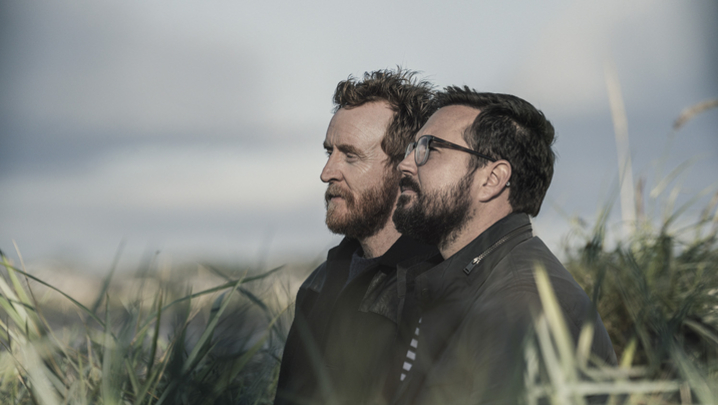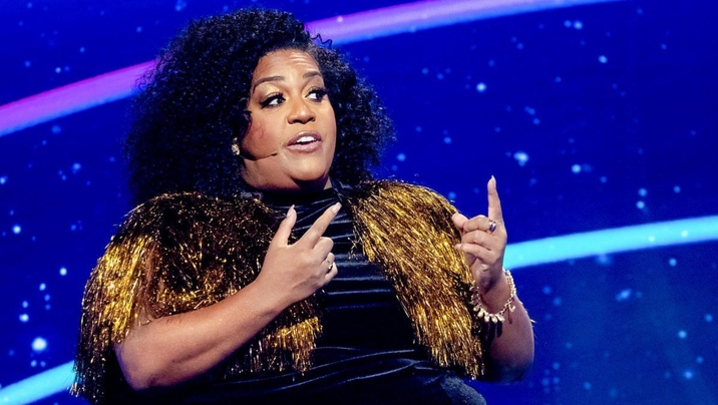Matthew Bell salutes Peter Flannery’s epic state-of-the-nation drama.
Few TV dramas deserve the epithet “Shakespearean” or “Tolstoyan” more than Peter Flannery’s Our Friends in the North, which turns 25 this year.
The BBC Two series was epic in scale, using more than 160 actors and 3,000 extras to tell the story of post-war Britain, its people and its dirty politics. It is also the tale of four Newcastle friends, who grow up and grow old over three decades. And it is both moving and magnificent.
Frequently judged one of Britain’s best-ever dramas, Our Friends in the North opens in 1964 with Geordie (Daniel Craig) and Tosker (Mark Strong) starting a band and hoping old friend Nicky (Christopher Eccleston) will join.
Nicky, recently returned from the US, has a guitar case bearing folk singer Woody Guthrie’s legendary words “This machine kills fascists”, and is forsaking pop for politics. Mary (Gina McKee) is going out with Nicky, but Nicky is consumed by ideology, not lust, and Tosker see his opportunity…
Over the next three decades, the friends drift in and out of love, and contact. Geordie falls into destitution; Nicky, ever the idealist, is his own worst enemy; foolish Tosker belatedly finds some self-awareness; and Mary, the beating heart of the drama, rises to the top.
The final scene, accompanied by Oasis’s Don’t Look Back in Anger, is impossibly poignant: at its recollection now, I am welling up.
Away from the personal, Our Friends in the North deals with big issues. Corruption looms large throughout, in local Newcastle politics, Westminster and the police.
Ordinary people suffer, whether they are the tenants of substandard, local authority housing built on bribes; or Geordie, the victim of corrupt police officers and a Soho sex baron (Malcolm McDowell); or the pickets savagely beaten during the 1984 miners’ strike.
Jarrow-born Flannery was writing from experience: he had witnessed the economic devastation wrought on the North East. Our Friends in the North is angry but never righteously so; it is also warm and funny. Not inaccurately, Flannery has described it as “a posh soap opera with something to say”, although this underplays the series’ huge ambition.
As the Royal Shakespeare Company’s writer in residence, Flannery had penned a stage version of Our Friends in the North. The 1982 RSC production was seen by BBC producer Michael Wearing (producer of Boys from the Blackstuff and Edge of Darkness), who was determined to bring it to television.
It is often said that the BBC moves slowly, and never more so than with Our Friends in the North. The corporation was fearful that some of the real-life politicians, thinly disguised in Flannery’s script, would sue.
It was perhaps even more terrified at the budget for a series that was forever expanding in size and scope. Originally, Flannery’s epic ended with the triumph of Margaret Thatcher in 1979; the repeated delays allowed him to take it forward to 1995 as his characters approach middle age. By the time it was shot, a three-hour play had become a nine-part TV drama, with episodes of between 63 and 75 minutes.
Shooting was protracted and riven by rows. Directors changed, scripts were rewritten and whole episodes reshot. Eccleston and Strong didn’t get on and spoke only when the camera was rolling. The budget rose to £8m, a huge amount for the time.
Finally, in 1996, Our Friends in the North made it to the screen, and another BBC fear – that audiences would find the politics at the heart of the series a turn-off – proved to be entirely misguided. Viewers and critics loved it, and multiple RTS and Bafta awards followed.
Before the series aired, of the lead actors, only Eccleston had much of a profile (he had appeared in Jimmy McGovern’s Cracker). Our Friends in the North launched their careers: Craig became Bond; Eccleston regenerated as Doctor Who; McKee later starred in Notting Hill and Strong in Tinker Tailor Soldier Spy.
Flannery went on to write the multi-RTS-award-winning Channel 4 drama The Devil’s Whore, set during the English Civil War, and then to create the long-running BBC One series Inspector George Gently.
But Our Friends in the North remains his masterpiece.
Our Friends in the North is on BritBox.






